Search
Remove Ads
Advertisement
Summary 
Loading AI-generated summary based on World History Encyclopedia articles ...
Search Results
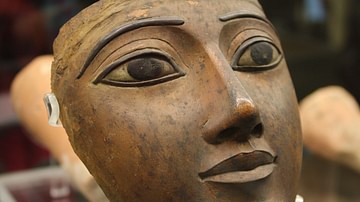
Image Gallery
Gallery of 25 Masks From the Ancient World
The love of masks is one of the striking similarities across global cultures. In this gallery of images, we showcase 25 masks from world history. Very often made with precious materials such as gold, jade and turquoise, these finely-crafted...
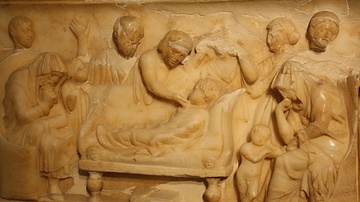
Article
The Roman Funeral
The Roman funeral was a rite of passage that signified the transition between the states of life and death. It was very important to conduct the proper ceremonies and burial in order to avoid having a malicious spirit rising from the underworld...
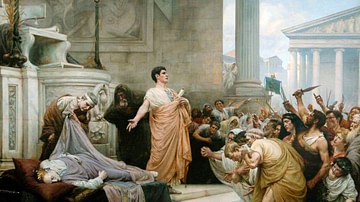
Article
Mark Antony's Oration at Caesar's Funeral
Amid the chaos and strife following the assassination of Julius Caesar in 44 BCE, Mark Antony (83-30 BCE), with the advice of Cicero, persuaded the Roman Senate to declare an amnesty which pardoned the Liberators and accepted the legitimacy...
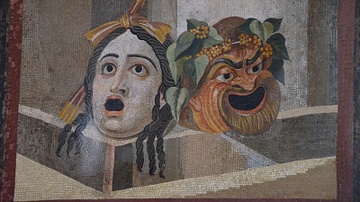
Image
Theatre Masks, Roman Mosaic
Roman Mosaic depicting theatrical masks of Tragedy and Comedy, 2nd century CE, from Rome. (Palazzo Nuovo, Capitoline Museums)
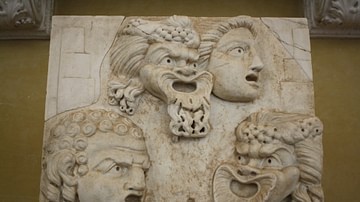
Image
Theatre Masks
A marble relief depicting theatre masks as worn by actors in both Greek and Roman tragedies and comedies. 2nd century CE (Vatican Museums, Rome).
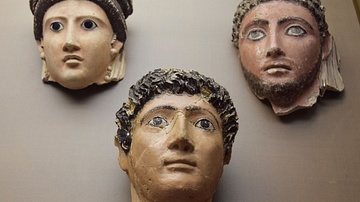
Image
Roman Mummy Masks
These Roman mummy masks come from ancient Egypt. They date from the 1st-2nd century CE, and they painted and made from plaster. (Pushkin Museum, Moscow)
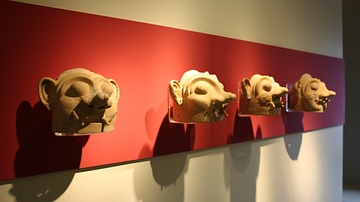
Image
Greek Terracotta Masks
Terracotta ceremonial masks from Tiryns, 7th century BCE. Nafplio Archeaological Museum.
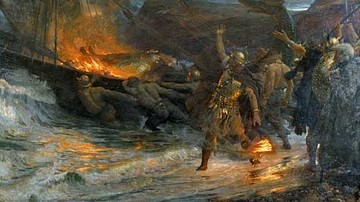
Image
The Funeral of a Viking
Painting by Frank Dicksee (1853-1928 CE) titled "The Funeral of a Viking", showing a Viking being cremated on a ship pushed out to sea. The painting resides at the Manchester Art Gallery in the UK. Historically, although burial became...
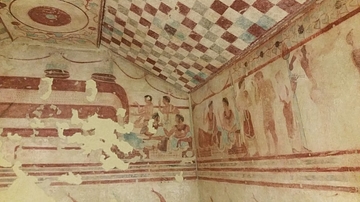
Image
Tomb of the Funeral Couch, Tarquinia
The Etruscan Tomb of the Funeral Couch, Tarquinia, 470-450 BCE. (National Etruscan Museum, Villa Giulia, Rome)

Video
Why Plague Doctors Wore Beaked Masks
Explore the history of the European plague doctor, and find out where their iconic outfit of a beaked mask and robe came from. The year is 1656. Your body is wracked by violent chills. Your head pounds and you're too weak to sit up. In...